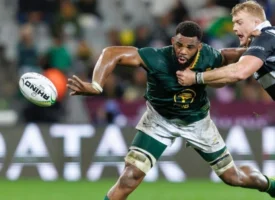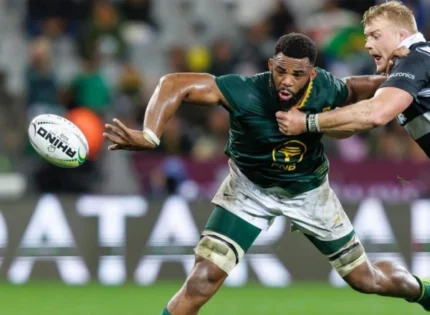Technology
Jimmy Swaggart, the legendary American televangelist whose fiery sermons and gospel music once reached millions of homes across the world,…
Lifestyle & Fitness
Jimmy Swaggart, the legendary American televangelist whose fiery sermons and gospel music once reached millions of homes across the world,…
Equatorial Guinea’s Balthazar Engonga Ebang Jailed For 18 Years Balthazar Engonga Ebang, who made headlines in late 2024 for viral…
Food & Recipes
Photography
NBA - Basketball
Sports News
Jimmy Swaggart, the legendary American televangelist whose fiery sermons and gospel music once reached millions of homes across the world, has died at the age of 90. He…
Equatorial Guinea’s Balthazar Engonga Ebang Jailed For 18 Years Balthazar Engonga Ebang, who made headlines in late 2024 for viral videos showing him with multiple women, has now…
Multichoice CEO Scores R35 Million Salary After Turning R4 Billion Loss Into Profit Multichoice CEO Calvo Mawela is walking away with a hefty R35 million ($2 million) pay…
Diddy Beefs Up Security at His Mansion Ahead of Possible Release Diddy’s people aren’t wasting time. With the rap mogul possibly heading home soon, his team is tightening…
2 Armed Robbers Jailed for 144 Years After Terrorising Travellers on Masvingo-Beitbridge Highway Two men who went on a violent robbery spree along one of Zimbabwe’s busiest highways…














